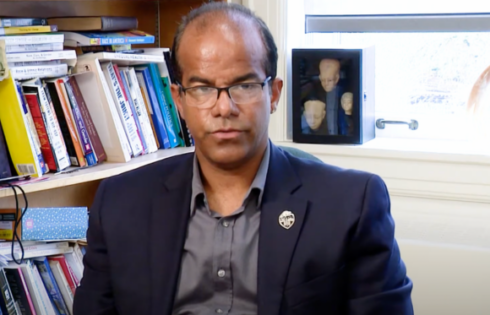
Federal court upholds new Indiana law on academic freedom
A U.S. District Court judge dismissed a lawsuit filed by the ACLU against an Indiana law that aims to promote “intellectual diversity” on college campuses.
Indiana Gov. Eric Holcomb signed Senate Bill 202 in March to crack down on mandatory diversity, equity and inclusion ideologies. A section of the law threatens the tenure and promotion of professors who do not uphold “free inquiry, free expression, and intellectual diversity” in their classrooms, as previously reported by The College Fix.
The law also mandates a review every five years to ensure that tenured professors are promoting these freedoms. Additionally, universities must establish a process for students and employees to file complaints against faculty members who do not support intellectual diversity.
Representing four tenured professors, the ACLU of Indiana filed the lawsuit against Indiana and Purdue campuses to prevent the new “post-tenure review and tenure-denial provisions,” Inside Higher Ed reported.
The lawsuit argued the law is too vague to follow and might force scholars to censor themselves or teach debunked theories.
“SEA 202 states professors must be disciplined if they fail to ‘foster a culture of free inquiry, free expression, and intellectual diversity’ and ‘expose students to scholarly works from a variety of political or ideological frameworks.’ However, neither professor can discern what these incredibly ambiguous terms mean and what they are required to do or refrain from doing to avoid running afoul of the statute,” the civil liberties group stated on its website.
“The law could mean that public college or university professors must give debunked theories equal time in their classrooms alongside rigorously studied academic analysis.”
But federal judge Sarah Evans Barker referred to a previous case in her decision, stating, “litigants ‘cannot manufacture standing merely by inflicting harm on themselves based on their fears of hypothetical future harm that is not certainly impending,’” Inside Higher Ed reported.
Barker observed that the board of trustees has yet to define “intellectual diversity,” as policies to enforce the law have not been established.
“Absent the formulation and enforcement of these final policies, it is impossible to determine whether [the professors] do in fact have an ‘objectively good reason for refraining from speaking and self-censoring instead,’” Barker wrote in her decision.
The ACLU issued a statement in response to the decision, telling local media outlets: “The suit was filed to protect the First and Fourteenth Amendment rights of faculty at Indiana public colleges and universities. … The ACLU of Indiana is disappointed and is currently considering options for next steps to protect academic freedom at our state’s public colleges and universities.”
The Foundation for Individual Rights and Expression, which advocates for free speech, previously told The College Fix that while it supports the intent of the law, it could be used to unfairly silence professors.
“Intellectual diversity within institutions is desirable and helps create a true ‘marketplace of ideas’ at our colleges and universities,” FIRE Lead Counsel Tyler Coward said in March, a month after the bill was signed into law. “However, SB 202 goes too far into regulating academic instruction and contains vague standards for faculty evaluation that administrators or departments could too easily abuse.”
MORE: Ohio bill to ban mandatory DEI, support intellectual diversity stalls in House
IMAGE: Mojo_cp/Canva Pro
Like The College Fix on Facebook / Follow us on Twitter






Please join the conversation about our stories on Facebook, Twitter, Instagram, Reddit, MeWe, Rumble, Gab, Minds and Gettr.